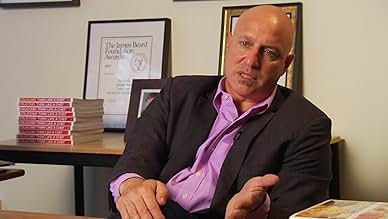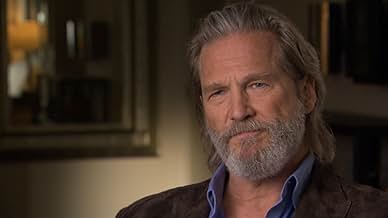IMDb RATING
6.9/10
1.2K
YOUR RATING
A documentary that investigates incidents of hunger experienced by millions of Americans, and proposed solutions to the problem.A documentary that investigates incidents of hunger experienced by millions of Americans, and proposed solutions to the problem.A documentary that investigates incidents of hunger experienced by millions of Americans, and proposed solutions to the problem.
- Awards
- 1 win & 2 nominations total
Jim McGovern
- Self
- (as James McGovern)
Featured reviews
This documentary should be seen by everyone who think that the economic system in the US is a perfect one. It also shows how much the people that actually generates wealth are exploited, just for the record bankers, financiers and the stock-market don't generate wealth, its the people that make products and services that benefit humankind that generates wealth.This of course comes from a guy that most Americans would consider a communist.
It warns about the future problems that the US might face if this type of problem is as prevalent as it depicts( I don't know all the facts behind this film ). If it is accurate then I hope for the people in the US will fix it instead of hope for the stock-market to fix it, it will not do that.
It warns about the future problems that the US might face if this type of problem is as prevalent as it depicts( I don't know all the facts behind this film ). If it is accurate then I hope for the people in the US will fix it instead of hope for the stock-market to fix it, it will not do that.
It's a national disgrace than nearly 50 million of our American neighbors live in homes that can't afford enough food. This compelling film explains why we have this problem, and, most importantly, what we can do to end it. Granted, I am biased because I fight hunger for a living, but I do think everyone in America should see this film.
The film powerfully documents the real lives of real people struggling against hunger. Each of them defy common stereotypes of hungry people.
Many Americans believe that we can end U.S. hunger one person at a time, one donated can of food at a time. They are well-meaning. But they are wrong, as this powerful film proves. When Ronald Reagan entered office in 1981, there were only a few hundred emergency feeding programs in America, most of which were traditional soup kitchens serving mostly the people who had been historically the most hungry—single men with substance abuse or mental illness problems. Yet, as a direct result of the economic policies and social service cuts set in motion by Reagan, the number of emergency feeding programs in America skyrocketed, and continued to do so even after he left office. There are now more than 40,000 such programs in America, and roughly two-thirds of them are food pantries, where parents and their children, the elderly, and working people obtain free groceries. Meanwhile, hunger has soared. The truth is that these agencies simply don't have anything close to the resources needed to meet the demand. The organization I manage, the New York City Coalition Against Hunger, found that, in 2011, close to sixty percent of the approximately 1,100 soup kitchens and food pantries in the city were forced to ration food because they lacked resources, either reducing portion size, limiting hours of operation, or turning away hungry families. These agencies are so under-funded that nearly 50 of them were forced to close in New York City in just the last few years.
This vital film proves that the only way to truly end U.S. hunger is by advocating for fundamental change that include living wage jobs and a robust government safety net.
The film powerfully documents the real lives of real people struggling against hunger. Each of them defy common stereotypes of hungry people.
Many Americans believe that we can end U.S. hunger one person at a time, one donated can of food at a time. They are well-meaning. But they are wrong, as this powerful film proves. When Ronald Reagan entered office in 1981, there were only a few hundred emergency feeding programs in America, most of which were traditional soup kitchens serving mostly the people who had been historically the most hungry—single men with substance abuse or mental illness problems. Yet, as a direct result of the economic policies and social service cuts set in motion by Reagan, the number of emergency feeding programs in America skyrocketed, and continued to do so even after he left office. There are now more than 40,000 such programs in America, and roughly two-thirds of them are food pantries, where parents and their children, the elderly, and working people obtain free groceries. Meanwhile, hunger has soared. The truth is that these agencies simply don't have anything close to the resources needed to meet the demand. The organization I manage, the New York City Coalition Against Hunger, found that, in 2011, close to sixty percent of the approximately 1,100 soup kitchens and food pantries in the city were forced to ration food because they lacked resources, either reducing portion size, limiting hours of operation, or turning away hungry families. These agencies are so under-funded that nearly 50 of them were forced to close in New York City in just the last few years.
This vital film proves that the only way to truly end U.S. hunger is by advocating for fundamental change that include living wage jobs and a robust government safety net.
A PLACE AT THE TABLE (dir. Kristi Jacobson, Lori Silverbush) A brilliant documentary that confronts America's perennial inability to deal with the widespread problem of hunger in our nation. Ronald Reagan slashed federal programs that were beginning to solve the issue by the late 1970's, however he cynically felt that the matter would best be solved by relying on good old fashioned Christian charity. And it didn't work then, and it doesn't work now. Millions of Americans struggle daily with 'food insecurity' (you don't know where your next meal is coming from), and it seems that our leaders are convinced that the poor have it far too easy, and are just too dependent on the largess of the American tax payer. However, the film does expose the pertinent fact that America's richest food corporations were able to continue to enjoy 100% of their lavish federal government subsidy, yet the food stamp budget was severely cut to pay for a program to end childhood hunger. So much for our so called 'Christian' policies, and the film provides yet another reason for me to continue to be a proud secular humanist.
To the people going on about, and snubbing that "obese people just drink soda etc." you really miss the point. So much about hunger, and this documentary pertains to ACCESS. Why in the richest country in the world are there food deserts? It's all great to say, eat broccoli instead of chips, but in many parts of the world, the chips are the cheaper, and only food available. Why? We can not all afford or even have access to organic, lush foods. That is part of the problem. Not to mention lack of liveable wages. And, why should the church be solving the problem of hunger? Our ideology devalues human life. Years later if the Covid pandemic has taught us nothing, it's that most people are a just a pay check away from being food insecure. It has zero to do with weight, or laziness or whatever myopic excuses people who apparently never suffered a day in their life, portend to make it about.
After watching this documentary, all I can say is, some Americans are downright HYPOCRITES. By pushing their pretensions to help the world, with setup movies and all the Cr*** that we see
The most chocking part is that, we can never see those faces in world vision add! But they exist.
Now, Africa does not look so bad after all 50millions in one country? That almost the same for Africa (the continent) with over 50 something countries in it. Instead of American government to admit and call it what it is starvation, like always they plays with words "food insecurity" hum How is it possible to let my own family starve and give food to my neighbour's?
The most chocking part is that, we can never see those faces in world vision add! But they exist.
Now, Africa does not look so bad after all 50millions in one country? That almost the same for Africa (the continent) with over 50 something countries in it. Instead of American government to admit and call it what it is starvation, like always they plays with words "food insecurity" hum How is it possible to let my own family starve and give food to my neighbour's?
Did you know
- TriviaThe original title for this documentary was "Hungry in America."
- ConnectionsFeatured in Moyers & Company: United States of ALEC: A Follow-Up (2013)
Details
- Release date
- Country of origin
- Official site
- Language
- Also known as
- Mesto za stolom
- Filming locations
- Collbran, Colorado, USA(main location)
- Production companies
- See more company credits at IMDbPro
Box office
- Gross US & Canada
- $231,378
- Opening weekend US & Canada
- $92,257
- Mar 3, 2013
- Gross worldwide
- $231,378
- Runtime1 hour 24 minutes
- Color
- Aspect ratio
- 1.78 : 1
Contribute to this page
Suggest an edit or add missing content




































